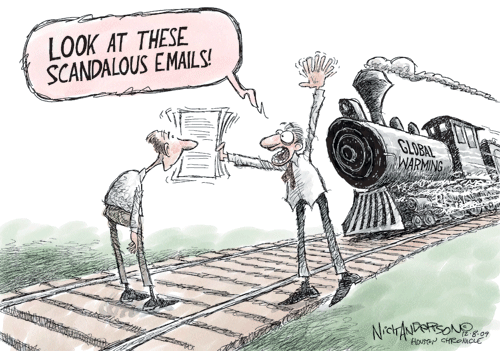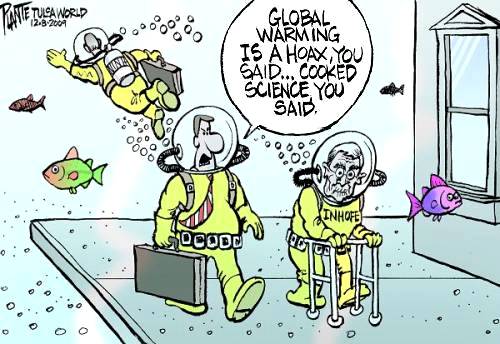The stolen emails have not been verified as undoctored yet folks.
What will you do when they are proven to be altered by the thiefs who stole them?
This is so ridiculous. They have been verified by the fucking authors!!
The stolen emails have not been verified as undoctored yet folks.
What will you do when they are proven to be altered by the thiefs who stole them?
Religon is the reason why those who attack the science behind global warming.They want to believe the "god" is in control of the environment and man couldn't possibly effect nature because "god" is in control.Its a dangerous belief to depend apon a mythology when the stakes are life and death.


Ive seen what science says. Man is causeing the present global warming by polluting the envronment.But Global warming is the least of the problems that man has caused.
The stolen emails have not been verified as undoctored yet folks.
What will you do when they are proven to be altered by the thiefs who stole them?
The stolen emails have not been verified as undoctored yet folks.
What will you do when they are proven to be altered by the thiefs who stole them?
Some of these emails are from 1996, do you remember an email verbatum from 1986?
There may very well be ways to trace wether they have been doctored that take a little more time.
The people who produced them stole them. Do you think they are above deception even though they are thieves?
Some of these emails are from 1996, do you remember an email verbatum from 1986?
Tell me Desh... have the scientists in question given any kind of statement that would suggest THEY think these emails might have been doctored? Or are you simply making up excuses?
Yes, Science can typically prove itself...
Not all of the emails have been verified by the people who wrote them, most have.
Now if you thought you did not write what someone claims you did would you verify them?
They did verify most of them as their own writings.
Maybe they are waiting for the diagnostic proof the emails were altered before they proclaim them false?
Not all of the emails have been verified by the people who wrote them, most have.
Now if you thought you did not write what someone claims you did would you verify them?
They did verify most of them as their own writings.
Maybe they are waiting for the diagnostic proof the emails were altered before they proclaim them false?
No, Superfreak... Science can NOT prove itself! If science proved itself, nuclear fission would not be possible and helicopters could not fly! These are things science indeed "indicated" or "suggested" at one time. Had we assumed science "proved" itself, Einstein would have never discovered the theory of relativity, and nuclear fission would have never happened. It is precisely because science didn't "prove" itself, that he was able to discover something else.
Science is an area of study and knowledge, it is not capable of "proof" or "conclusion", those are parameters established by MEN, not science! It only provides data and information to man, it never presumes, concludes, or proves anything... EVER!
I know it is truly hard for you to suppress your tendency to be a complete fucking moron... but do try. You are playing semantics.
Gravity.... enough said.
Dipshit.
Not playing semantics, science doesn't "prove" gravity, in many cases, science can't even explain gravity! Man concludes that gravity exists based on scientific information. We make presumptions and conclusions from science all the time, but the actual "science" does nothing but provide information, WE make the determinations of conclusion and proof from that.
Who's being the moron here?
you... that is obvious.


